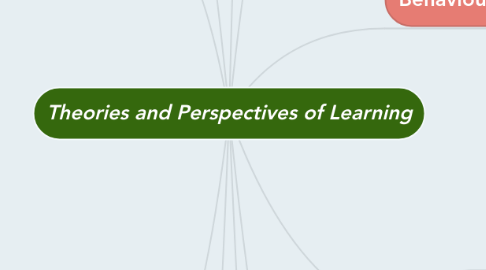
1. Experiential Learning
1.1. Brainstorm
1.2. We can get experience from
1.2.1. Doing
1.2.2. Experiment
1.2.3. Practice
1.2.4. Learn from mistakes
1.2.5. Trail and error
1.2.6. Remember process in long-term memory
1.2.7. Participate in competitions
1.2.8. Try new things
1.2.9. Engagement
1.2.10. Learn from environment
1.2.11. Try new things
1.3. Kolb's experiential learning cycle
1.3.1. Concrete experience
1.3.2. Reflective Observation
1.3.3. Abstract Conceptulization
1.3.4. Active Experimentation
1.4. Experiential learning cycle
1.4.1. Concrete experience
1.4.2. Reflective Observation
1.4.3. Abstract Conceptulization
1.4.4. Active Experimentation
1.5. Promote reflective thinking
1.5.1. Plan
1.5.2. Do
1.5.3. Review
2. Learning styles
2.1. Learning Style Models
2.1.1. Honey-Mumford Model
2.1.1.1. Four Learning Styles
2.1.1.1.1. Enthusiastic learning style
2.1.1.1.2. Imaginative learning style
2.1.1.1.3. Practical learning style
2.1.1.1.4. Logical Observing learning style
2.1.2. Neuro- Linguistic Programming
2.1.2.1. Three Learning Styles
2.1.2.1.1. Visual Learners
2.1.2.1.2. Auditory Learners
2.1.2.1.3. Kinaesthetic Learners
2.2. Classroom Application
2.2.1. Subgroup
2.2.2. Explain
2.2.3. Use
2.2.3.1. Multisensory teaching strategies
2.2.4. Find Out
3. Motivation and Learning
3.1. Nature of the learning experience
3.1.1. Acknowledge
3.1.2. Motivation
3.1.3. Independence
3.2. Tye of motivation
3.2.1. Intrinsic
3.2.1.1. Comes From Within a Person
3.2.2. Extrinsic
3.2.2.1. Come From Outside Forces
3.3. Motivation Theories
3.3.1. Behavioral Theories of Motivation
3.3.2. Cognitive Theories of Motivation
4. Emotions and Learning
4.1. Emotions show on
4.1.1. Facial Expression
4.1.2. Body Language
4.2. Emotional Intelligence
4.2.1. Self-awareness
4.2.2. Self-regulation
4.2.3. Motivation
4.2.4. Empathy
4.2.5. Social Skill
4.3. Emotion Involves
4.3.1. Cognitive
4.3.2. Physiological
4.3.3. Behavioral
5. Behaviourist Approaches to Learning
5.1. Cassical conditioning
5.1.1. Ivan Palov
5.1.2. Salivating dogs
5.1.2.1. food + dog
5.1.2.2. bell + food + dog
5.1.2.3. bell + dog
5.1.2.4. Then , the dog will forget
5.2. Operant conditioning
5.2.1. The work of skinner
5.2.2. Increase desired behavior
5.2.2.1. Positive reinforenment
5.2.3. Decrease desired behavior
5.2.3.1. Negative reinfornment
5.2.3.2. Punishment
6. Cognition theories of learining
6.1. Cognitivist theorists
6.1.1. Jean Piaget
6.1.2. Concepts
6.1.2.1. Schema
6.1.2.2. Accommodation
6.1.2.3. Assimilation
6.1.2.4. Equilibration
7. Constructivism
7.1. Theories
7.1.1. Piaget
7.1.1.1. Cognitive
7.1.1.1.1. Thinking
7.1.1.1.2. Learning
7.1.2. Vygotsky
7.1.2.1. Social
7.1.2.1.1. Social context
7.2. Active process
7.2.1. E.g games
7.2.2. Drama
7.2.3. Presentation
7.3. Teacher's Role
7.3.1. Promote dialogue
7.3.2. Conversation
7.3.3. Scaffolding
7.3.4. Guide, support
8. Theory of Multiple Intelligences
8.1. 3 Main factors
8.1.1. Biological endowment
8.1.2. Personal life history
8.1.3. Cultural and historical background
8.2. 8 Different ways
8.2.1. Verbal/ linguistic
8.2.2. Logical/ mathematical
8.2.3. Visual/spatial
8.2.4. Musical/rhythmic
8.2.5. Intrapersonal
8.2.6. Bodily-kinestheic
8.2.7. Interpersonal
8.2.8. Naturalist
8.3. 3 Ways
8.3.1. Promote skills
8.3.2. Avariety of ways of learning
8.3.3. Prsonlity education
9. Consolidation of key Learning
9.1. Learning is a
9.1.1. Process
9.1.2. Social process
9.1.3. Situated
9.1.4. Metacognitive process
10. Theories of learning
10.1. Theory
10.1.1. How to learning
10.1.1.1. Research
10.1.1.1.1. Interveiw
10.1.1.1.2. Documents
10.1.1.1.3. Questionnaire
10.1.1.2. Facts
10.1.1.3. Discussion
10.1.1.4. Thinking
10.2. Learning is
10.2.1. Step by step
10.2.2. From your experience
10.3. Three branches of learning theories developed
10.3.1. Bahaviourism
10.3.2. Constructivism
10.3.3. Cognitivism
10.3.3.1. Thinking

